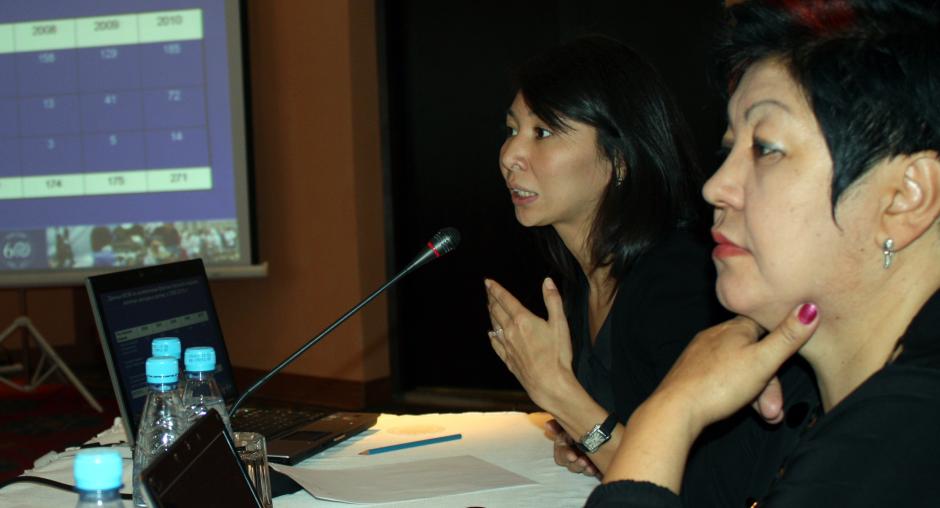OSCE Centre in Astana promotes prevention of child trafficking

ASTANA, 27 September 2011 - Ways to prevent the trafficking of children from orphanages and special schools was the topic of an OSCE-organized discussion held in Astana today.
The event aimed to raise awareness among relevant government agencies on how to improve the protection of particularly vulnerable children, such as those in orphanages and mentally disabled children. Such children often face difficulties in accessing child protection and social welfare systems and can be deprived of basic rights, such as protection from abuse or exploitation.
Some 30 officials from the Parliament, Supreme Court, Ministries of Justice, Internal Affairs, Health, Education, Tourism and General Prosecutor’s Office together with representatives of the non-governmental sector and international organizations attended. The meeting was organized by the OSCE Centre in Astana in co-operation with the Ministry of Justice, the US Embassy in Kazakhstan and the NGO Feminist League.
“Victims of human trafficking require comprehensive assistance and support," said Dulat Kustavletov, the Vice-Minister of Justice. "This requires close interagency and government-civil society co-operation and co-ordination. The Interagency Commission on combating trafficking in human beings under the Ministry of Justice coordinates activities on prevention of trafficking in human beings among government bodies, civil society organizations and international actors, and we support this initiative to further enhance our efforts to protect children.”
Ambassador Alexandre Keltchewsky, the Head of the OSCE Centre in Astana said: “To prevent trafficking of children and reduce children’s vulnerability it is important to create a protective environment. That is why the OSCE is assisting in strengthening the capacity of state actors, including educational and social services, to address the problem of human trafficking within their scope of responsibilities.”
Galina Morozova, the President of the Feminist League NGO added: “Many orphans are practically illiterate, lack social skills and are unable to deal with everyday situations when they leave their institutions. Therefore they easily become victims of abuse. Staff working in specialized institutions need special training to help empower these vulnerable children.”
The meeting completes an OSCE-supported project to increase the awareness of social workers, psychologists and teachers about trafficking prevention strategies.
